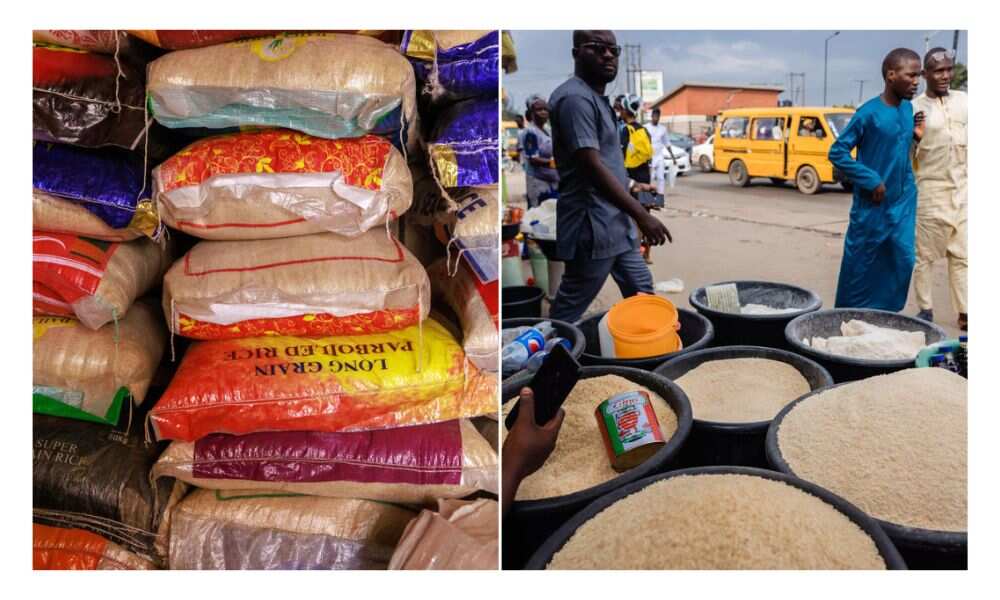[ad_1]
- The price of rice has skyrocketed in the past two months to peak at N48,000 per 50kg
- Market survey shows that the price of the commodity has risen to N45,000 in Lagos and N48,000 elsewhere
- Traders and retailers blamed the rise in the cost of the product of the high cost of transportation
The World Food Security Update revealed that at the end of July 2023, the prices of agricultural products, exports, and cereals spiked by 6%, 4%, and 10%, respectively.
Also, the prices of maize and wheat increased to close at 12% and 14% at the end of July 2023.

Credit: Bloomberg / Contributor
Source: Getty Images
Global food shortage hits Africa, other regions
Per the report, high food inflation was noticeable in most low-and middle-income countries, with inflation rates exceeding 5%. Africa, North America, Latin America, Southeast Asia, Europe, and Central Asia were affected the most, experiencing food price inflation of over 80% in real terms.
PAY ATTENTION: Сheck out news that is picked exactly for YOU ➡️ find the “Recommended for you” block on the home page and enjoy!
According to Nairametrics, rice prices have surged in Nigeria by 29% within two months, causing widespread worry among traders and consumers.
Reports say that locally produced rice is sold at N37,00 per 50kg in the nation’s capital, Abuja, while imported rice goes for N48,000 per 50kg.
Price of rice nears N50,000 in some states
Towards the end of July, the commodity price rose in Port Harcourt, peaking at N48,000. Although, the cost of the commodity differs by type and brand.
Mango rice is sold at N39,000, Mama’s Pride at N38,000, and Cap rice increased to N48,000.
Distributors reportedly blamed the rise in the cost of transportation after the subsidy was removed from petrol on May 29, 2023.

Read also
Updated: Dangote Cement, MTN, 8 other companies lose over N630bn in 6 months after Tinubu, CBN naira decision
They also blamed the volatile exchange rates market and the cost of accessing Forex in the country.
Sellers reveal reason for price increase
The Nigerian government banned rice importation, emphasizing locally produced rice.
Also, tariffs on rice imports increased for packages larger than 5kg or smaller from 50% to 60%.
Market surveys show that Nigerians rarely patronize locally-produced rice.
Retailers cited that Big Bull, high-quality locally produced rice, is unavailable in the market, and when found, the price could be more affordable.
India bans rice export to Nigeria, other countries amid inflation as commodity hits N40,000 per 50kg
Legit.ng reported that the Indian government says it has stopped the export of non-basmati white rice to Nigeria and other countries to lower the cost of the staple in the country.
The country’s Ministry of Consumer Affairs, Food, and Public Distribution revealed the export ban in a statement on Thursday, July 20, 2023.
The non-basmati rice is a small grain rice and is widely consumed in the Asian country.
Source: Legit.ng
[ad_2]
Source link






